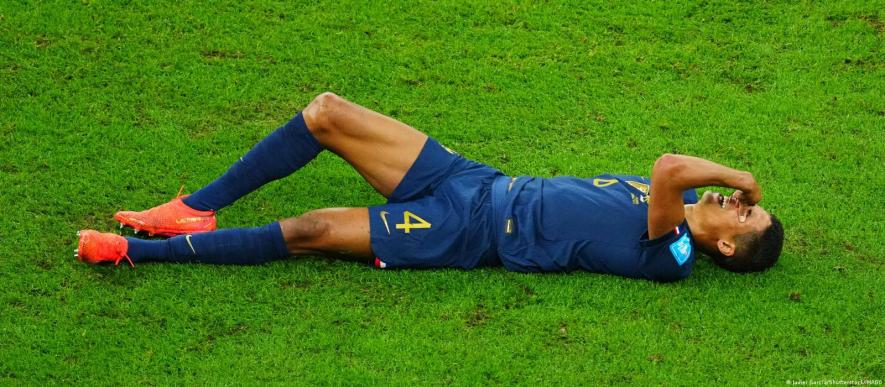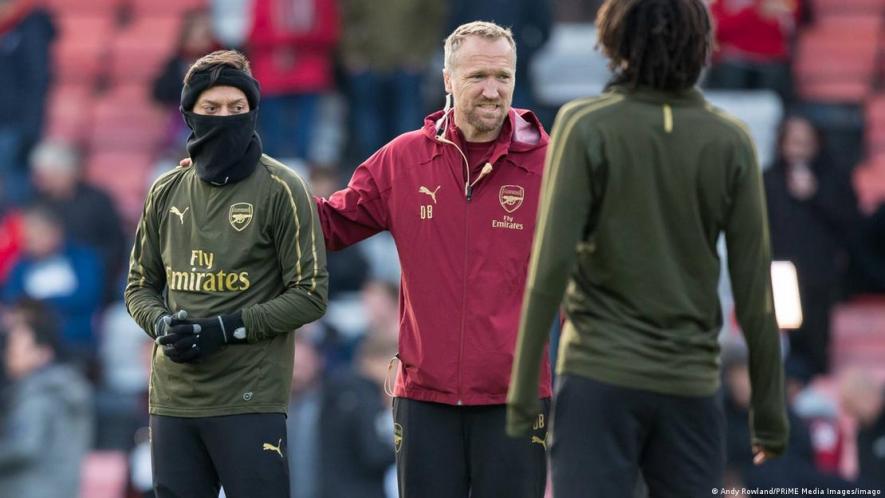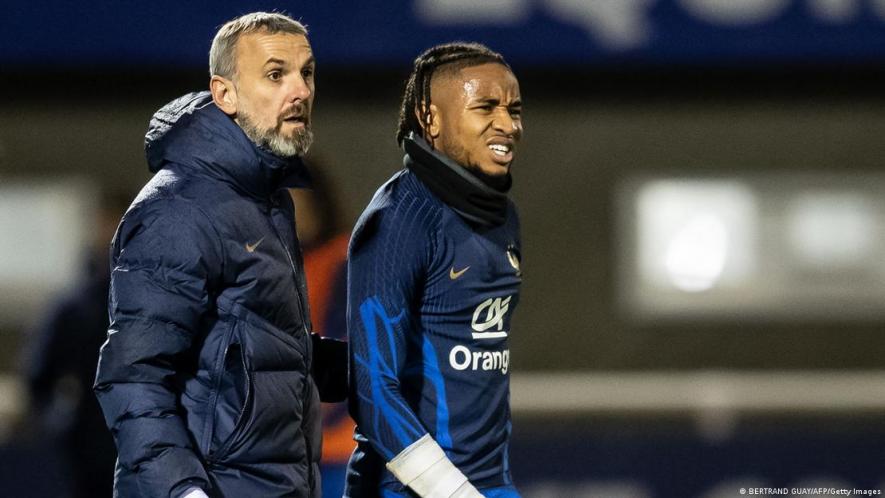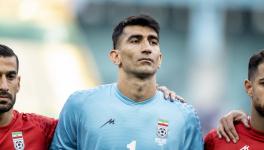World Cup 2022 Player Workload Survey Shows Alarming Signs

France defender Raphael Varane caught many by surprise last month when he announced his retirement from the national team at the age of just 29.
"I gave everything, physically and mentally," Varane said in an interview with Canal+. "But the very highest level is like a washing machine, you play all the time and you never stop. We have overloaded schedules and play non-stop. Right now, I feel like I'm suffocating and that [Varane] the player is gobbling up [Varane] the man.”
A new survey shows Varane is not the only player struggling to cope with physical and mental fatigue. After the 2022 World Cup, the French squad, which included Varane, had played the most minutes of any nation in international club competitions. At the time of announcing his retirement, Varane had played 2,136 minutes in the current campaign.
🧵 At only 29, @RaphaelVarane revealed to Canal+ that he decided to retire from France duty because he was struggling to cope with football's overloaded match schedule.
Football must listen. pic.twitter.com/faj5BIxDpE
— FIFPRO (@FIFPRO) February 6, 2023
'It was practically suicide'
Following the tournament in Qatar, the global union for professional football players, FIFPRO, conducted a survey to find out more about the players' workload during the 2022 World Cup. The samples collected from 64 players ensured feedback from every World Cup group, every stage of the tournament, including both finalists, and a broad range of age profiles.
The World Cup in Qatar marked a significant departure from tradition, as it was the first edition of the tournament played during the winter. In an already highly condensed match calendar, this led to many players arriving in Qatar just days before their first match. One player quoted in the survey said that "it seemed bizarre, that players had to return so quickly — it was practically suicide. They could have gotten injured, but luckily, they didn't."
According to the survey, 86% of the players felt they needed at least 14 days of preparation time before a tournament and 61% were in favor of a minimum of 14-28 days recovery time following its conclusion. Varane, for example, played in a league match for Manchester United nine days after playing 112 minutes in the World Cup final.
The shortest World Cup in history
Due to the timing, the 2022 World Cup had a compressed schedule, with 64 matches played in just 29 days. Even with 32 participating nations, the tournament became the shortest since the 1978 tournament, which only featured 16 teams.
"What we know for a fact is that fatigue creates injuries and poor performance," Dr. David Burgess told reporters at a media event unveiling the report. "We are not only talking physical exhaustion, but the mental part as well. We have seen often that mental fatigue not only causes a performance drop on the field, but also leads to general poor lifestyle choices."

Dr. Darren Burgess worked for Arsenal and Liverpool in the Premier League
Burgess is FIFPRO's senior advisor on player workload, health and performance. He is also the high-performance manager of Australian Rules Football club Adelaide Crows, and has previously worked with Arsenal, Liverpool and the Australian national team.
"We saw the impact prior to the World Cup of a number of players with minor issues missing an entire tournament, because of the poor lead-up," Burgess said.
Karim Benzema and Christopher Nkunku are two examples from the French team who missed the entire World Cup because of injuries suffered in the lead-up to the tournament.
"Some players played matches by January 1st after the World Cup, and that's playing matches, not arriving back at the club. It's a significant issue."
Major increase of injury time
Another problem was the extraordinarily long injury time that was implemented at the 2022 World Cup. As a result of that new policy, the average time-added-on at tournament matches was around 11.6 minutes, which is an increase of almost 60% compared to the World Cup in Russia four years earlier and double what was considered to be the norm in previous decades.
While the increase in playing time may seem small in the bigger picture, Burgess said it could have a significant impact on the players' workload, rest, recovery and conditioning.
"Because of the extended injury time, players had to run on average almost one kilometer (0.6 of a mile) more at the 2022 Qatar World Cup compared to previous tournaments," he said. "If you put that on top of some of the high-pressure stress situations that the players are already asked to go through, you can see why we are concerned with those numbers."
Fifty-three percent of the surveyed players said they liked the extension of stoppage time in Qatar, but they also stressed that if this practice were to be adopted generally in football, this would need to be taken into account in the planning of fixtures.

Christopher Nkunku (right) missed the entire 2022 World Cup due to an injury caused in France's training camp
Presumably, though, this would require a reduction of matches, and what governing body or league would voluntarily reduce the number of its games — and in turn its revenue? Would players be willing to take a pay cut to play fewer games?
"Cannibalization of the calendar"
FIFPRO's general secretary, Jonas Baer-Hoffmann, said that FIFA had expressed a desire to find a compromise regarding the match calendar, but there hasn't been a clear proposal yet on what that could look like.
"We expect FIFA to prioritize players' health," Baer-Hoffmann said. "We have made an agreement with them, which stipulates that they would negotiate the calendar with us in good faith. What's happening at the moment is a 'cannibalization' of the schedule, with different governing bodies eating up the calendar. There are no safeguards put into place for the players and it's very worrying."
53% of the surveyed players reported having suffered an injury or felt more likely to suffer an injury due to the congested calendar, while 44% said they had experienced extreme or increased physical fatigue compared to how they usually feel by January.
Raphael Varane is certainly not the only player to voice concern, but his comments act as a reminder of the potential personal cost of football's packed calendar.
"FIFA knows exactly what we think is necessary, we have told them for years. We have discussions with them, but they're not at the level where at this point we feel like there is a proposition on the table that we could sign off on," Baer-Hoffmann said.
So what if FIFA doesn't take FIFPRO's suggestions on board and continues with the status quo?
"Then we will consider our own steps." What they will look like? "Time will tell."
Edited by: James Thorogood
Get the latest reports & analysis with people's perspective on Protests, movements & deep analytical videos, discussions of the current affairs in your Telegram app. Subscribe to NewsClick's Telegram channel & get Real-Time updates on stories, as they get published on our website.
























